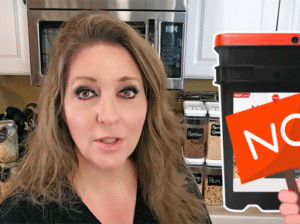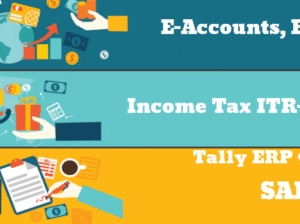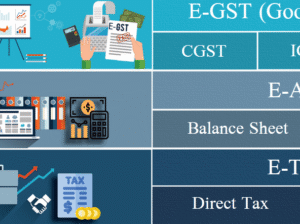7 Google Penalties That Can Crush Your Website Traffic
Google takes its ranking system seriously and constantly changes it to give people the best search experiences possible. This also means that sites or pages that break Google’s Webmaster Guidelines will be punished. You can get a Google penalty if you do black hat SEO on purpose, if you don’t maintain your site correctly, or if Google changes its code. No matter what, Google penalties hurt your search ranks, and in some cases, your pages or whole website could be taken off the results.
What Is A Google Penalty?
When Google finds that a website doesn’t follow its Webmaster Guidelines, it punishes it. There are two kinds of fines, but both lead to a drop in traffic and rating.
Algorithmic penalties
Google changes its algorithm annually to ensure it keeps giving its users the best results. Penguin, Panda, Pigeon, and Hummingbird are some of the most well-known Google changes. Some algorithm updates, like Panda (for keyword stuffing, grammatical errors, and low-quality content) and Penguin (for black hat linking tactics), are meant to lower the rank of pages that don’t follow the rules. Other updates, like Pigeon (for solid local signals) and Hummingbird (for mobile responsiveness), are meant to boost the rank of pages that meet new criteria.
Manual Penalties
Honest Google workers punish pages by hand when they have problems with content quality and security that might not be intentional or when they use “black hat” SEO to intentionally mess with Google’s algorithm. Manual fines are easy to find and fix, but algorithm penalties are stiff.
Most Common Google Penalties And How To Prevent Them
Every company wants to be on the first page of Google so that more people will visit their website and buy from them. And to do that (with SEO), you have to work hard and be patient for a long time. Because of this, many people, especially those who just started a blog or website, want to take shortcuts to get on top. But these strategies don’t work because Google punishes sites that use them. You can read about the seven most common fines and how to avoid or fix them here.
Thin Content And Portal Pages
This is when website owners put more emphasis on numbers than quality SEO content because they think more content will bring in more visitors. They might post short pieces and use tools to make or take content from other sites. Google can tell when you’re doing these bad SEO things, and low-quality content also makes your business look bad. When Panda 4.0 was updated in 2016, the goal was to make low-quality material and “doorway” pages less visible in search results. This is the reason eBay lost 80% of its natural lists!
How To Avoid The Thin Content Penalty:
- Only try to share some of your content or make a little of it at a time. Mass-produced content is never good; content that isn’t on brand or makes sense can come from outsourcing.
- If you need help getting more high-quality content, hire freelancers who work in your business and can work with you closely to make pages your readers find helpful.
- Make sure you do proper keyword research to find the correct terms to target and that your content fits the searcher’s needs.
- Instead of entry pages, make pillar pages or information that stands independently.
- Make a more extended page with more information about one keyword by combining short pages designed for related keywords.
Hidden Text And Links
Not letting people see any text or links for SEO is against Google’s Webmaster rules. There are several ways to hide text and associations, such as:
- Putting 0 in front of the font size
- Putting links or white text in the background
- Putting words behind a picture
- Making words appear off-screen with CSS
- Changing the background color of the links to match
How To Avoid The Hidden Content Penalty
To start with, never do it on purpose. It might not belong on your page if you have to hide something. If this was something other than what you meant to do, In Search Console, go to the URL inspection tab and type the broken pages into the search box. Then, click “view crawled page.” You can look there for any CSS or secret links.
Bad Or Unnatural Links To Your Site
Google’s Penguin algorithm change in 2016 was made to find link-building that doesn’t look natural. Building backlinks from high-quality websites is a practical SEO approach that can help your page’s trustworthiness, but only if the links come naturally from those sites.
How To Avoid The Unnatural Link Penalty
Of course, use a promising approach for building links that don’t include the following:
- Links for sale or buy
- Exchange of links (you link to my site, and I’ll link to yours)
- Links to your forum page or signature
- Links to blog comments
- Links to article directories
- Putting up too many links too quickly
- Links from PBNs
Keyword Stuffing
Put keywords in the title, headlines, body, meta description, and alt text. This is called on-page SEO. It helps Google understand your page. But term stuffing on purpose could be better SEO and will get you in trouble with Google.
How To Avoid The Keyword Stuffing Penalty
- Regularly use buzzwords, like how you would talk about something in person.
- Use long-tail or LSI terms instead of just one primary phrase. Some tools can help you find keywords.
Hacked Website
Hackers who enter your website can risk your privacy by adding harmful code and unwanted content or redirecting your site to spammy or dangerous pages. All search questions will put your site much lower, and Google may even take your whole place off their search results because of this punishment.
How To Avoid The Hacked Website Penalty
Increase The Safety Of Your Website In Several Ways:
- Updating your content management system is essential.
- Make your passwords strong and change them often.
- Use an SSL certificate.
- Spend money on good hosting.
- To find hacks, use a malware checker.
- Regularly make copies of your website.
- To stop a brute force attack, hide the login URL and limit the number of times you can log in.
Using Structured Data Code Incorrectly
The structured data markup is a code that helps Google show your site more beautifully in search results. For example, it can show the number of reviews and the rate of each study.
How To Avoid The Structured Data Penalty
This Is Another Punishment For Using Black Hat Seo. Do These Things:
- To raise CTR, don’t add fake reviews. If you want genuine Google reviews, do these things the right way.
- When you mark up information, only use organized data that makes sense.
- Readers should be able to see your markup text.
- Don’t add any style text related to violence, illegal actions, or content that isn’t allowed.







